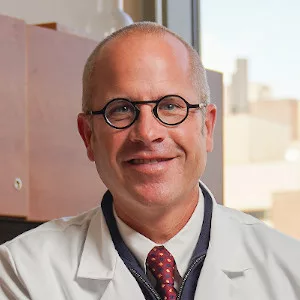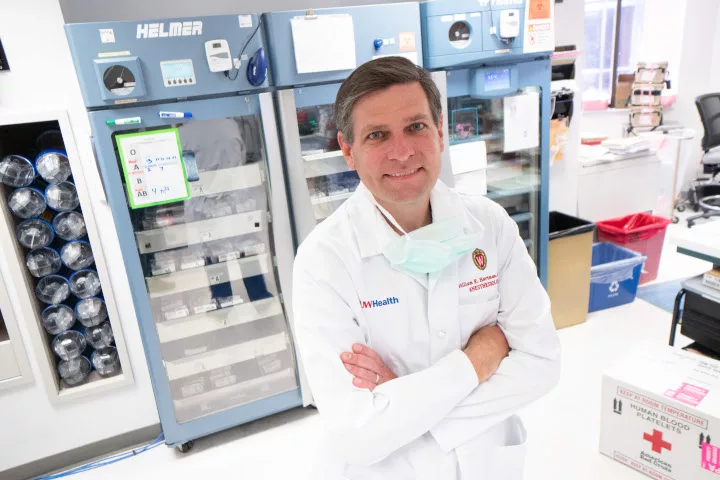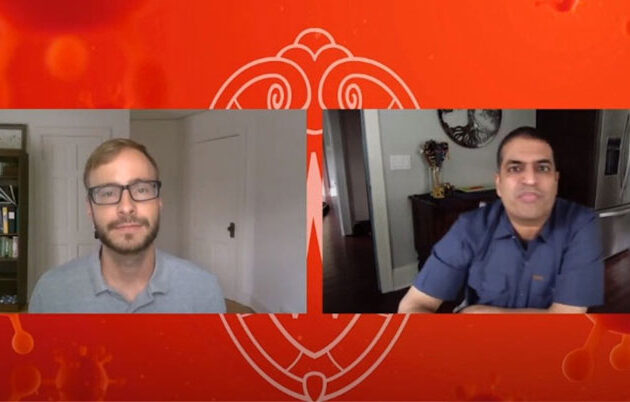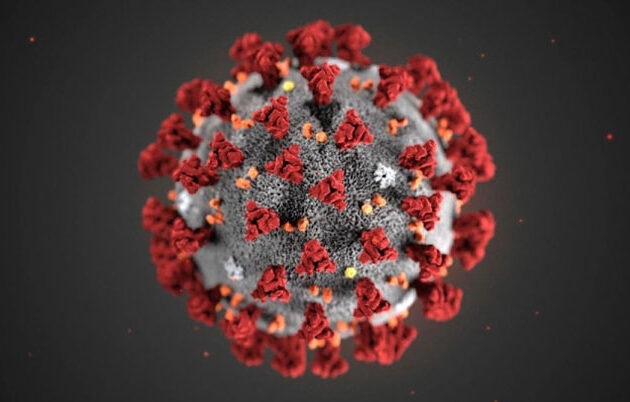Cytokine storm occurs when a person’s own immune system overreacts to what it perceives as invading pathogens, such as viruses. During the normal course of an infection, the body generates blood proteins called cytokines that cause threatened cells to die to prevent the spread of the virus to other cells. However, when the body releases too many cytokines too quickly, it can result in damaged organs and be life-threatening. In the lungs, it can starve the body of oxygen.
The Novartis trial, conducted in partnership with the pharmaceutical company Incyte, is a placebo-controlled treatment study with a drug that inhibits the JAK/STAT pathway, which is a channel of communication between proteins in a cell, Andes says.
“It is thought this treatment may prevent or treat the same syndrome that is linked to multisystem organ failure in a subset of patients with COVID-19,” he says.
Working with Betsy Nugent, director of clinical trials development and accreditation/chief clinical research officer at the School of Medicine and Public Health, the UW Office of Clinical Trials and the UW Institutional Review Board, Andes and his team established a collaboration with Novartis in less than two weeks and became a site for the trial, which is currently enrolling patients. The partnership is a strong example of SMPH and UW Health’s experience working with the pharmaceutical and biotechnology industries.
“Working with Novartis was very efficient, and they were accessible for questions,” Andes says. “Everyone at UW dropped what they were doing to try and get our patients access to a potentially beneficial therapy through a clinical trial that would provide critical answers for future care of this patient population for which we still have no defined optimal therapy.”
Working at lightning speed
Another clinical trial is investigating the therapeutic use of antibody-rich blood plasma from survivors of the disease began in the early weeks of the pandemic. William Hartman, MD, assistant professor of anesthesiology (CHS), is leading the UW–Madison and UW Health teams in partnership with 39 other research institutions. The study is investigating the potential for the plasma to lessen the severity of the disease in sick patients.
The rapid development and launch of this COVID-19 clinical trial required close collaboration between the School of Medicine and Public Health, UW Health, the UW Institute for Clinical and Translational Research and local partners, including Exact Sciences in Madison, which provides the COVID-19 tests required of all potential plasma donors, and the local office of the American Red Cross, which extracts, processes and delivers the plasma to University Hospital.




